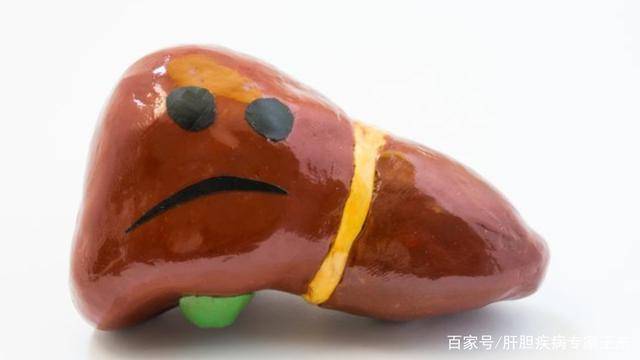The saying goes, “If the liver is not good, one will age before old age!”
The importance of a good liver is self-evident.
The liver, a highly complex organ in the human body, is also the largest digestive organ.
It is involved in detoxification, metabolism, synthesis, secretion, and many other tasks every day, and it can be said to work tirelessly.
Unfortunately, the liver is also a very “silent” organ, often becoming ill without any warning, catching us off guard.
Therefore, like a mountain collapsing with illness, taking early care of the liver is crucial!
If the liver is not good, one will age before old age! Eat more of the six items and regularly drink the three waters; a healthy liver means everything is good!
Six Items
One: Cabbage
Cabbage belongs to the cruciferous vegetable family, which can help the liver break down various chemical toxins and carcinogens.
These vegetables generally contain various plant nutrients, flavonoids, carotenoids, and more, with common examples being bok choy and white radish.
Two: Bananas
Bananas are nutritious fruits, rich in protein, potassium, vitamin A, vitamin C, dietary fiber, and various beneficial components.
Particularly, the presence of vitamin B1 or vitamin E in bananas has a special effect on the detoxification function of the liver.
Furthermore, bananas have certain benefits in promoting liver cell repair and regeneration, as well as protecting the liver.
Three: Blueberries
Studies abroad have found that blueberries contain a large amount of bioactive substances, rich in anthocyanins, polyphenols, flavonoids, and other unique components not commonly found in other fruits.
Regular consumption of blueberries has a certain preventive and therapeutic effect on cirrhosis.
Four: Olive Oil
According to foreign studies, olive oil has certain benefits in protecting the liver.
Regular consumption of olive oil minimizes the impact of toxin intake on the liver.
Five: Kiwifruit
Kiwifruit contains a variety of effective components such as calcium, vitamin C, vitamin E, essential amino acids, and minerals.
Kiwifruit can help the liver detoxify and has a strong liver-protective effect.
For those who drink alcohol, consuming kiwifruit after drinking can to some extent aid in relieving the effects of alcohol, as well as quickly alleviate symptoms such as gastrointestinal dampness, nausea, and so on.
Six: Grapes
Grapes contain rich minerals such as calcium, potassium, phosphorus, as well as various vitamins like B1, B2, B6, and trace elements.
The polyphenols in grapes act as natural free radical scavengers, possessing strong antioxidant properties that can effectively regulate liver cell function, resist or reduce the damage caused by free radicals to the liver, and have beneficial effects on liver nourishment and protection.
Three Waters
One: Goji Berry Water
Goji berries contain polysaccharides that have a protective effect on liver damage, assisting in reducing alanine aminotransferase levels, and facilitating liver repair.
It is recommended to steep 10 grams of goji berries in hot water for drinking, which can be used as a substitute for water consumption.
For office workers who use computers for long periods, drinking goji berry water can also help alleviate eye fatigue and other issues.
Two: Lemon Water
Lemons are rich in nutrients such as vitamin B1, vitamin B2, vitamin C, niacin, sugars, calcium, phosphorus, iron, potassium, and other valuable nutrients.
Lemons have a protective effect on the liver, aiding in promoting the body’s metabolism and facilitating the elimination of liver toxins.
Regular consumption of lemon water is beneficial for overall health.
Three: Honey Water
Honey can protect the liver to some extent, providing energy sources for liver metabolism and preparation. It also stimulates liver tissue regeneration and assists in repairing damage.
The liver dislikes four things the most, it’s best to avoid them!
First: Inadequate Sleep
Inadequate sleep and insufficient rest can lead to inadequate blood flow to the liver, affecting the normal metabolism of liver cells.
Especially for those already infected with hepatitis B virus, their already impaired liver cells will be difficult to repair, and there is a possibility of worsening.
Second: Smoking and Excessive Drinking
The multitude of harmful substances in tobacco smoke and smoke can damage the liver, being one of the main risk factors for disease and cancer.
The metabolic byproduct ethanol from alcohol is extremely harmful to the liver. Excessive drinking increases the risk of developing fatty liver and alcoholic liver disease.
Third: Random Medication
Self-medication without following medical advice carries the risk of liver damage. Indiscriminate use of multiple drugs can result in drug interactions, affecting the liver’s ability to metabolize drugs.
Fourth: Intense Anger and Depression
There is a close relationship between the liver and emotions.
It is best to maintain a cheerful spirit and pleasant mood as much as possible, as negative emotions have a considerable impact on the liver.


